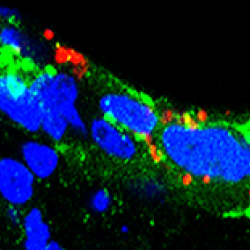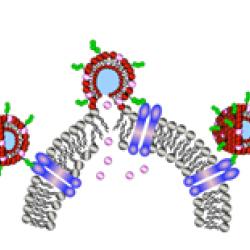
Daniel Stein
Graduate Program Affiliations
- Biological Sciences (BISI): Computational Biology, Bioinformatics, and Genomics (CBBG)
- Biological Sciences (BISI): Molecular and Cell Biology (MOCB)
Research Interests
Dr. Stein has 38 years of experience studying various aspects of neisserial biology, defining basic genetic processes of the gonococcus and relating them to gonococcal pathogenesis. He has developed a variety of genetic tools to manipulate the gonococcal genome, allowing him to generate strains with defined surface structures. Using these strains and the technologies that he has develop, he is dissecting the role that various surface molecules play in gonococcal pathogenesis. His current research focuses on how colonization by GC can result in asymptomatic infection, especially in women. He is examining the role of the opacity protein (Opa) and its interaction with lipooligosaccharide in gonococcal pathogenesis. While many papers have been published that support the hypothesis that Opa is a key GC invasin, promoting GC entry into cells, his research suggests that Opa can contribute to disease in additional ways. Using a strain where all 11 opa genes were deleted, he found that this strain invaded into cervical tissue explants much better than Opa-expressing bacteria. Since Opa expression leads to significant bacterial clumping, it suggests that this Opa function may be highly relevant to preventing invasive GC disease, and the inability to induce symptoms. A second research project focuses on various aspects of neisserial phage biology. He believes that their functionality plays an essential role in virulence. Students use molecular genetic, cellular, immunological bioinformatic and biochemical techniques to further our understanding of gonococcal disease.
He co-founded SD Nanosciences, a biotechnology company focused on utilizing surfactant vesicle technology for gonococcal vaccine development and drug delivery.
Education
- Ph.D., University of Rochester, 1981








